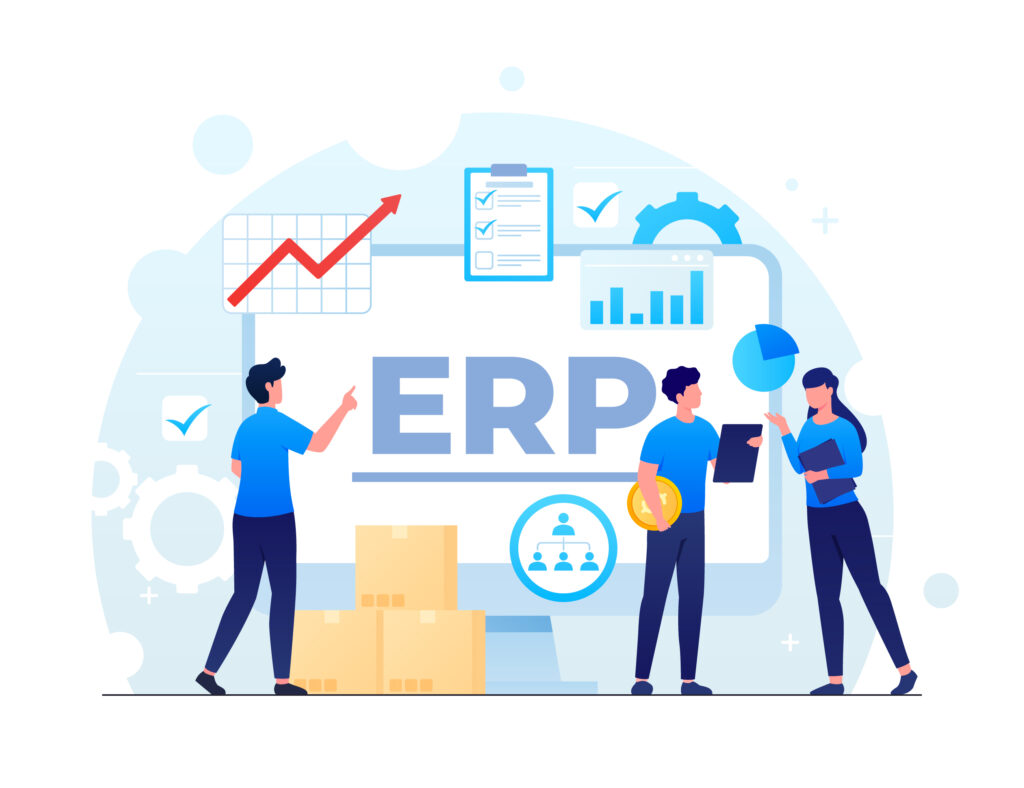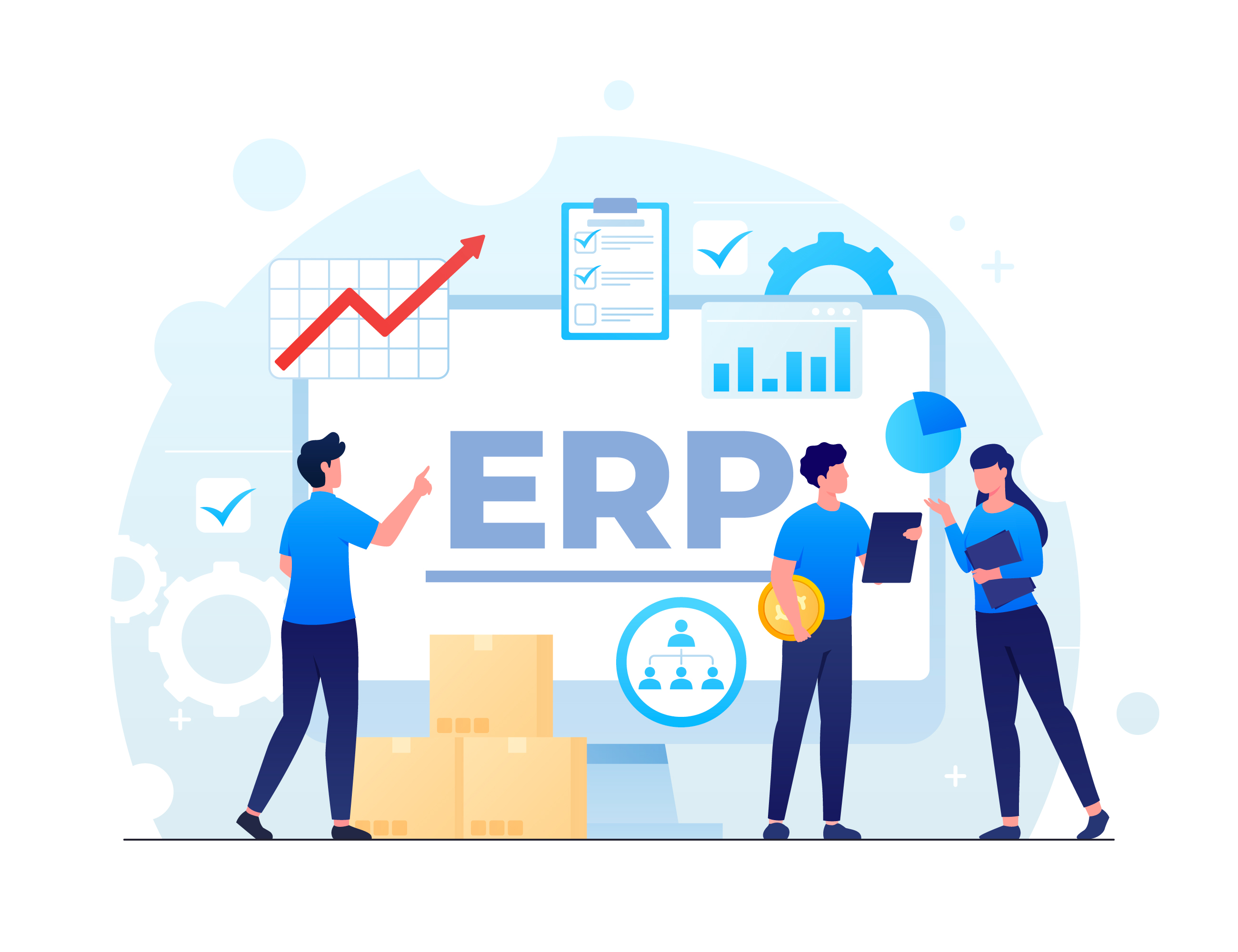In today’s fast-paced business world, maximizing efficiency and productivity is key to staying ahead of the competition. One way to achieve this is by integrating CRM and ERP systems to create a unified system. In this article, we will explore the benefits of CRM and ERP integration and how it can streamline your operations.
Benefits of CRM and ERP Integration

Streamlined Data Management
Streamlined data management is one of the primary benefits of integrating CRM and ERP systems. When businesses use separate systems, the same data often has to be entered twice, once in the CRM and once in the ERP system. This duplication of effort wastes valuable time and resources and increases the risk of errors. By integrating CRM and ERP systems, businesses can eliminate the need for duplicate data entry and create a more streamlined flow of information between sales and accounting teams.
With a unified system, data inconsistencies and errors can be avoided, leading to greater accuracy and reliability. This means that businesses can spend less time on administrative tasks and more time on tasks that drive growth and profitability.
In addition to eliminating data entry redundancy, a unified system also enables businesses to automate data synchronization between the two systems. This means that data entered into the CRM system is automatically updated in the ERP system, and vice versa. This real-time data synchronization ensures that all teams have access to the same information and can make decisions based on accurate and up-to-date data.
In summary, streamlined data management through the integration of CRM and ERP systems eliminates duplication of effort, improves accuracy and reliability, and enables real-time data synchronization. This results in increased efficiency, better decision making, and greater productivity for businesses.
Enhanced Visibility
Enhanced visibility is another major benefit of integrating CRM and ERP systems. By creating a unified system, businesses can gain a 360-degree view of their customers’ interactions with the business, from initial contact to post-sale support. This allows businesses to track every touchpoint with customers and provides a complete view of the customer journey.
This enhanced visibility enables businesses to provide a personalized experience for their customers, which can lead to increased customer satisfaction and loyalty. By understanding the entire customer journey, businesses can identify opportunities to improve customer interactions, such as offering proactive support, suggesting relevant products or services, and providing targeted marketing campaigns.
In addition to customer visibility, a unified CRM and ERP system can also provide businesses with greater insight into their own operations. By consolidating data from different business functions, such as sales, finance, and inventory, businesses can gain a comprehensive view of their business performance. This allows businesses to identify patterns and trends in their operations, such as seasonality or changing customer behavior, and make informed decisions accordingly.
Furthermore, enhanced visibility allows businesses to measure and analyze key performance indicators (KPIs) more accurately. By having access to real-time data, businesses can monitor their performance and adjust their strategies as needed to achieve their goals. This enables businesses to stay agile and responsive to changing market conditions, ensuring that they remain competitive and profitable.
In summary, enhanced visibility through the integration of CRM and ERP systems provides businesses with a 360-degree view of their customers and their own operations. This enables businesses to provide personalized experiences for their customers, make more informed decisions, and respond to changing market conditions.
Improved Sales Forecasting
Improved sales forecasting is another key benefit of integrating CRM and ERP systems. By consolidating customer data from the CRM system with financial data from the ERP system, businesses can gain valuable insights into customer behavior and purchasing patterns. These insights can be used to develop more accurate sales forecasts, which can help businesses better manage inventory, avoid stockouts, and reduce the risk of overstocking.
With a unified system, businesses can track customer interactions with the business, such as browsing history, purchasing history, and customer service inquiries. By analyzing this data, businesses can identify patterns and trends in customer behavior, such as seasonality or changing preferences. This can be used to create more accurate sales forecasts, which in turn can be used to make informed decisions about inventory management.
Improved sales forecasting can also help businesses identify opportunities for cross-selling and upselling. By analyzing customer data, businesses can identify products or services that are frequently purchased together, and use this information to create targeted marketing campaigns. This can lead to increased revenue and customer satisfaction, as customers are presented with products or services that are relevant to their needs and interests.
In summary, improved sales forecasting through the integration of CRM and ERP systems enables businesses to make more accurate predictions about customer demand. This can help businesses avoid stockouts, reduce the risk of overstocking, and identify opportunities for cross-selling and upselling. By
Increased Efficiency
Increased efficiency is a key benefit of integrating CRM and ERP systems. By consolidating data from different business functions, businesses can reduce the need for manual data entry and improve the accuracy and completeness of their data. This can help to streamline business processes and reduce the time and resources required for data management.
With a unified system, businesses can automate many of their business processes, such as order processing, invoicing, and inventory management. This can reduce the risk of errors and increase the speed and efficiency of these processes, enabling businesses to respond more quickly to customer needs and market conditions.
In addition to process automation, a unified system can also provide businesses with better visibility into their own operations. By tracking KPIs across different business functions, businesses can identify areas for improvement and optimize performance. This can help to reduce the time and resources required for manual data analysis and decision-making, enabling businesses to focus on core business activities.
Furthermore, increased efficiency can also help to improve customer satisfaction and loyalty. By streamlining business processes, businesses can respond more quickly to customer needs and provide a better overall customer experience. This can lead to increased customer loyalty and positive word-of-mouth, which can help to drive future growth and profitability.
In summary, increased efficiency through the integration of CRM and ERP systems enables businesses to streamline their processes, reduce manual data entry, and automate many business activities. This can help to reduce the time and resources required for data management, optimize business performance, and improve customer satisfaction and loyalty.
Better Decision Making
Better decision making is another critical benefit of integrating CRM and ERP systems. By consolidating data from different business functions, such as sales, finance, and customer service, businesses can gain a comprehensive view of their operations. This enables businesses to make more informed decisions based on accurate and up-to-date data.
With a unified system, businesses can access real-time data that can be used to inform decision-making across the organization. For example, sales teams can use customer data from the CRM system to identify opportunities for cross-selling and upselling, while finance teams can use financial data from the ERP system to make informed budgeting and forecasting decisions.
In addition to real-time data, a unified system can also provide businesses with a centralized location for data analysis and reporting. This enables teams to collaborate more effectively and make decisions based on a common set of data. By having a single source of truth, businesses can avoid data inconsistencies and ensure that all teams are working from the same information.
Furthermore, a unified system can also provide businesses with better visibility into their own operations. By tracking KPIs across different business functions, businesses can identify areas for improvement and make data-driven decisions to optimize performance. This can lead to increased efficiency and profitability, as well as improved customer satisfaction and loyalty.
In summary, better decision making through the integration of CRM and ERP systems enables businesses to make informed decisions based on accurate and up-to-date data. By providing a centralized location for data analysis and reporting, businesses can collaborate more effectively and avoid data inconsistencies. This can lead to increased efficiency, profitability, and customer satisfaction.
In conclusion, integrating your CRM and ERP systems is a smart way to maximize efficiency and productivity in your business. By streamlining data management, enhancing visibility, improving sales forecasting, increasing efficiency, and enabling better decision-making, a unified system can help you stay ahead of the competition and achieve your business goals.




